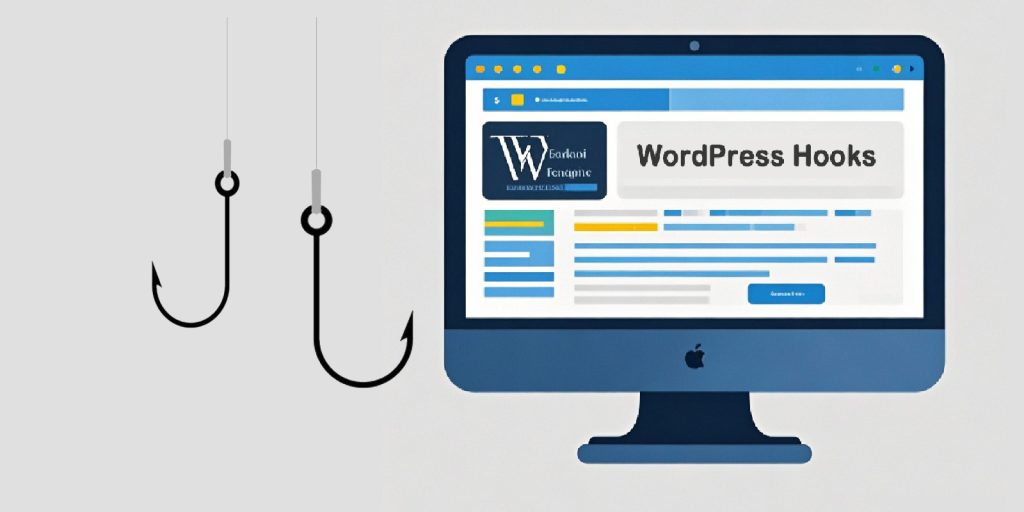In WordPress, hooks are essential concepts for customizing and extending the functionality of themes, plugins, and core features without modifying core code. They are part of WordPress’s Plugin API, which allows developers to “hook into” the WordPress code at specific points and modify its behavior.
Hooks in WordPress
Hooks are points in the WordPress code where developers can add their custom functions. They are broadly classified into two types:
- Action Hooks
- Filter Hooks
1. Action Hooks
Action hooks allow you to add or modify functionality in your WordPress site at specific points in the code execution. They “hook” your custom function to an action, making it run at certain points, like when a post is published or when a page is loading.
For example, you can add a function that executes whenever a new post is published by using the publish_post action hook:
// Custom function to run on post publish
function notify_on_publish($post_id) {
// Your custom logic here
wp_mail('admin@example.com', 'A new post was published!', 'Check out the new post!');
}
// Hook the function to the 'publish_post' action
add_action('publish_post', 'notify_on_publish');
2. Filter Hooks
Filter hooks allow you to intercept and modify data before it is outputted or saved. Unlike action hooks, filters are intended to manipulate data. You take the data, apply some modification, and return it.
For example, you can use a filter to modify the content of a post before it displays on the page:
// Custom function to modify post content
function add_custom_text_to_content($content) {
$custom_text = '<p>Thank you for reading!</p>';
return $content . $custom_text;
}
// Hook the function to the 'the_content' filter
add_filter('the_content', 'add_custom_text_to_content');
In this example, the filter the_content is applied to the content, and our function add_custom_text_to_content appends custom text to each post’s content.
The Difference Between Actions and Filters
- Actions perform a function or a task, like sending an email, updating a database, or enqueuing a script. They do not return data.
- Filters are used to modify data. They take data, modify it, and return the changed data. Filters must always return something.
Common Use Cases of Hooks and Filters
- Adding Custom Scripts:
wp_enqueue_scriptsis an action hook used to load custom stylesheets and JavaScript files. - Customizing Output:
the_contentis a filter hook that lets you modify post content before it is displayed. - User Registration:
user_registeris an action hook that runs when a new user is registered. - Modifying Titles:
the_titleis a filter that lets you modify post titles.
Conclusion
- Action Hooks allow adding new functionality at certain points (e.g., when a post is published).
- Filter Hooks allow modifying data at certain points (e.g., appending text to the post content).

